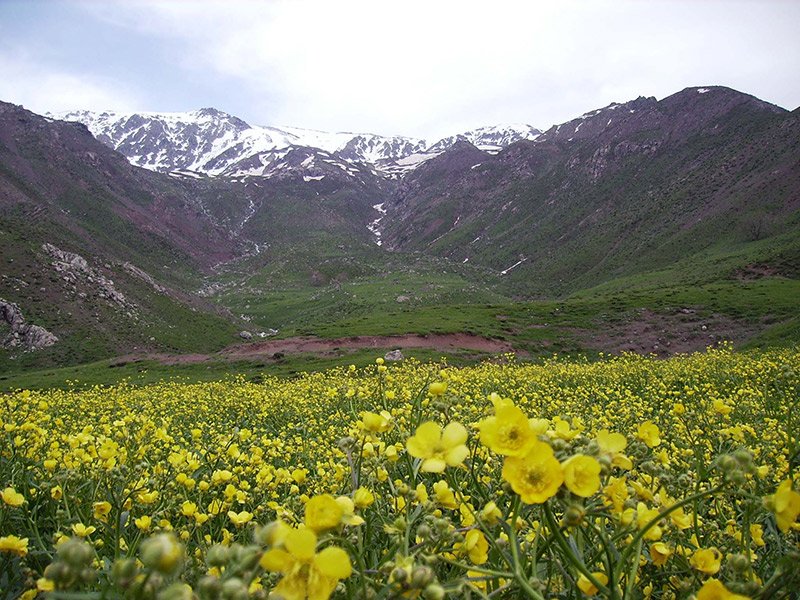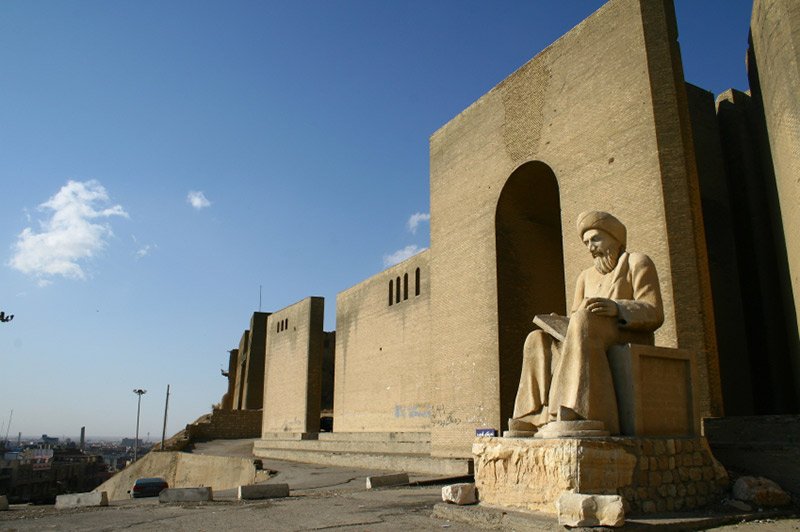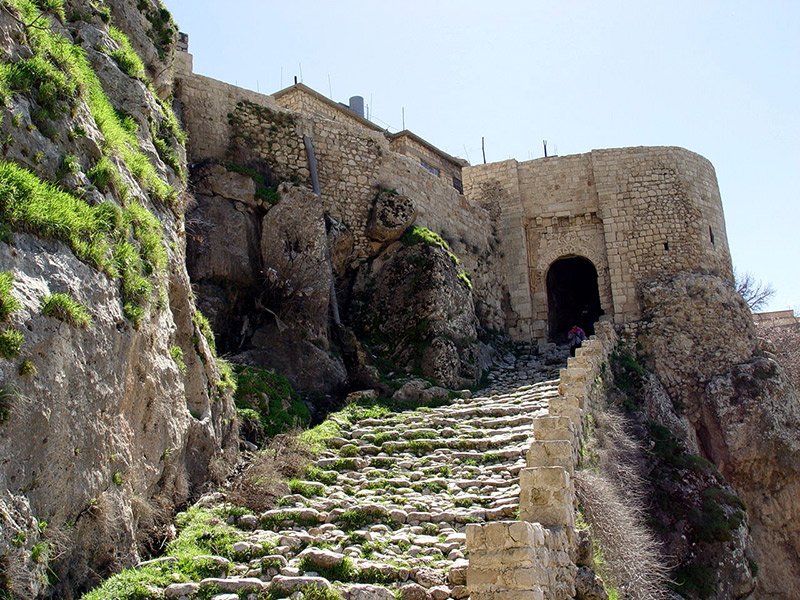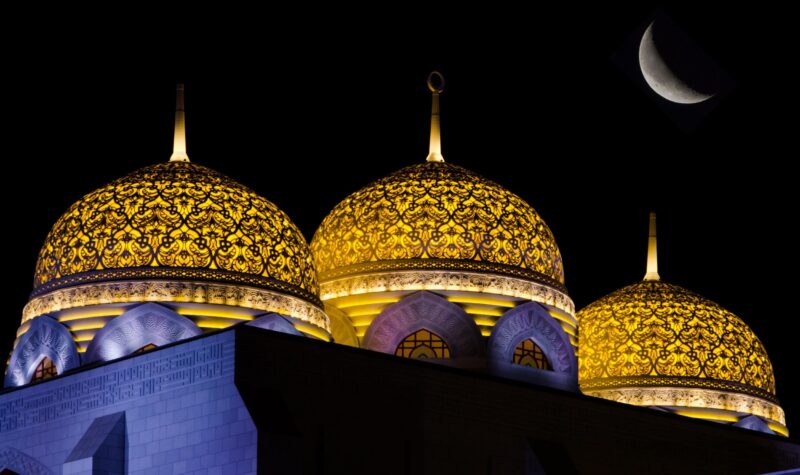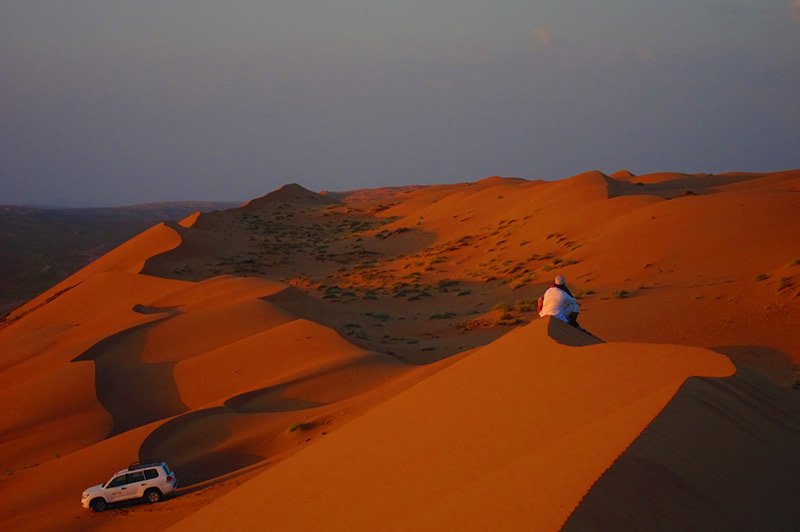| Tour Code | Start | End | Trip Status | Pricing Per person |
|---|---|---|---|---|
| IHK/301025 |
Oct 30, 2025
Thursday |
Nov 06, 2025
Thursday |
Please Contact Us for Availability |
£2,845.00
Single Room Supplement: £385.00 |
| IHK/291026 |
Oct 29, 2026
Thursday |
Nov 05, 2026
Thursday |
Guaranteed |
£2,845.00
Single Room Supplement: £385.00 |
| IHK/281027 |
Oct 28, 2027
Thursday |
Nov 04, 2027
Thursday |
Guaranteed |
£2,845.00
Single Room Supplement: £385.00 |
Highlights of Kurdistan
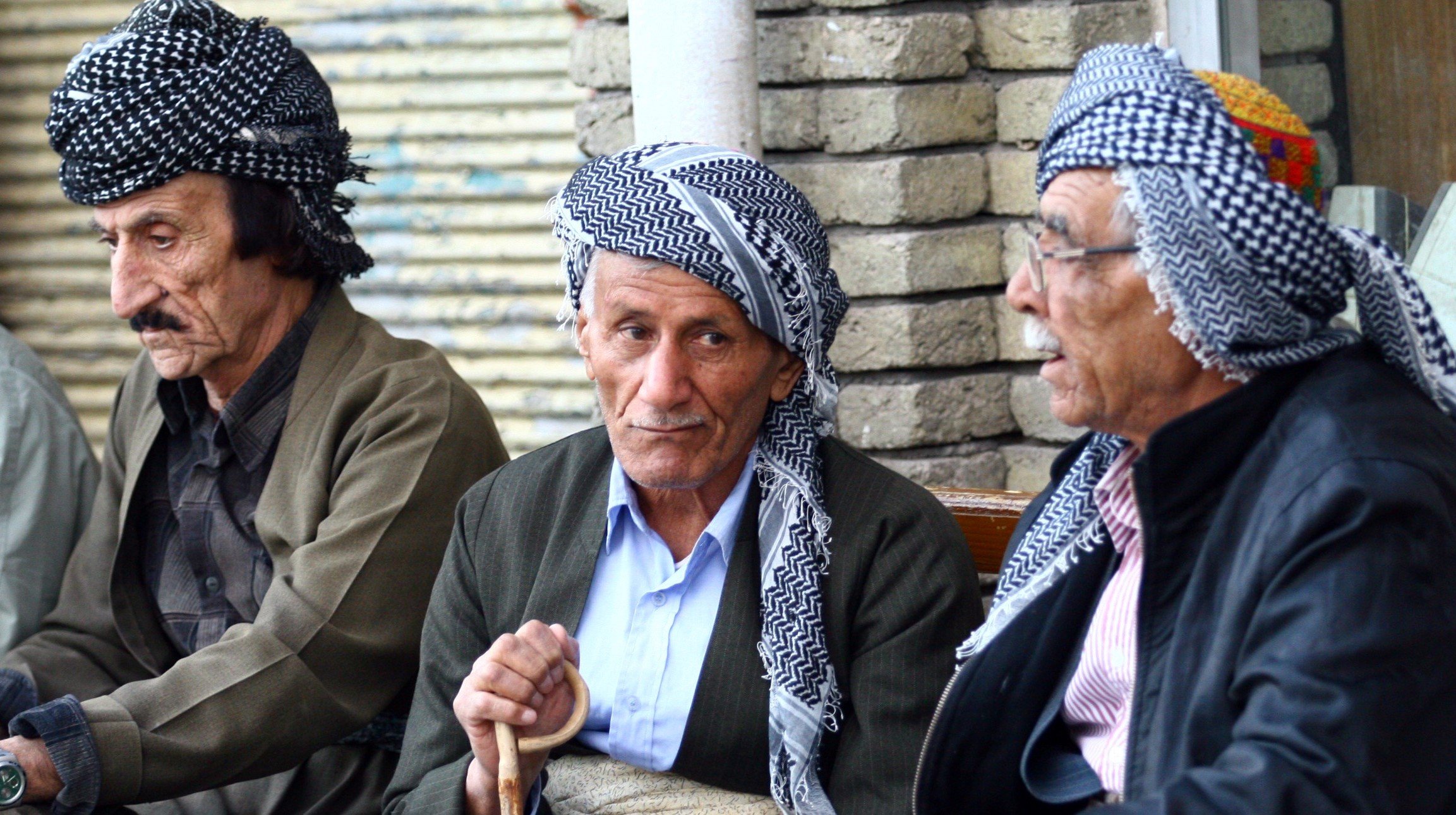
Iraqi Kurdistan is a fascinating place of sheer beauty, warm and friendly people and a rich and challenging history. Although situated in the northern part of Iraq, it is in many ways a world apart. Largely unknown or traditionally avoided by Western tourists, we believe this region is an absolute gem in the making and that now is the time to visit before the crowds discover this hidden world.
Arrival and departure transfers
Overland transport throughout with professional driver
All accommodation
Services of English-speaking guide / tour leader
Meals as listed, B – Breakfast, L – Lunch, D – Dinner
Entrance fees for sites listed as part of the itinerary
International flights (, contact , us, for expert advice and a quote)
Any airport taxes (except when prepaid with any domestic flights)
Travel Insurance
Visa – when required
Drinks
Items of personal nature
Tips (Discretionary)
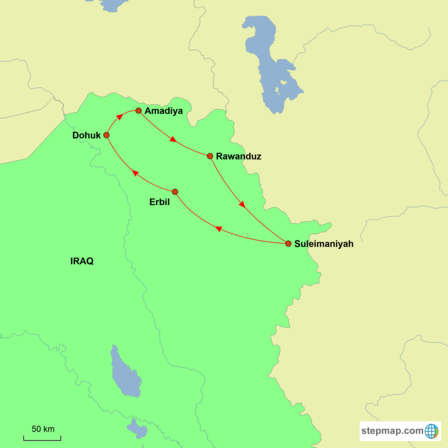
Explore the cultural heart of Iraqi Kurdistan on an 8-day journey through history, faith, and dramatic landscapes. Wander the ancient Citadel of Erbil and lively bazaars, then visit sacred Yazidi sites in Lalish and the battlefield of Gaugamela. Discover the cliff-top town of Amadiya, the legacy of Saddam’s atrocities in Halabja and the Red House, and the natural beauty of Shanidar Cave and Ahmed Awa waterfall. Meet monks in centuries-old monasteries and delve into Kurdish heritage at museums in Erbil, Suleimaniyah, and Barzan. From historic churches and synagogues to ancient aqueducts, this immersive tour blends archaeology, religion, and politics in a land both ancient and resilient. A rare look into one of the Middle East’s most misunderstood regions.
Erbil Citadel & Qaysari Bazaar
Explore one of the world’s oldest continuously inhabited cities with its UNESCO-listed citadel, vibrant market, and rich Kurdish heritage.
Sacred Yazidi Site of Lalish
Visit the spiritual heart of the Yazidi faith, with its unique conical temples and ancient rituals, offering a rare cultural and religious insight.
Gaugamela Battlefield
Stand on the historic site where Alexander the Great defeated King Darius III, a pivotal moment in world history.
Halabja & the Red House (Amna Suraka)
Confront the haunting legacy of Saddam Hussein's regime at powerful memorials documenting Kurdish suffering and resilience.
Shanidar Neanderthal Cave
Discover one of archaeology’s most famous prehistoric sites, shedding light on early human history amid stunning mountain landscapes.
Download the Information Pack
To download the tour full dossier, which includes a complete day-by-day itinerary breakdown and detailed tour information, fill in the details below.

Foreign Office Travel Warnings Before booking your tour, please familiarise yourself with the country specific information provided by the UK’s Foreign, Commonwealth and Development Office (FCDO) – www.gov.uk/foreign-travel-advice. This includes important information such as latest immigration requirements, and details of any travel advisories. We constantly monitor the advice posted by the FCDO. In particular we will always advise clients of any travel warnings. At the time of writing the FCDO advise against all but essential travel to the Kurdistan region. Please see – https://www.gov.uk/foreign-travel-advice/iraq. It is likely travel warnings will remain in place for some time to come, and we are only able to accept a booking on the basis that you are aware this is the case and confirm that you are still happy to travel irrespective of the current FCDO advice. We work very closely with experienced local contacts and are fully confident that it is safe to operate tours in the parts of Iraq that we visit. Please feel free to contact us should you have any specific concerns or would like to know in detail what measures are being taken to ensure visits remain trouble free and without incident. It should be noted that this information applies to British citizens. Other nationals are asked to check the current position of their respective government. Visa Information At the time of writing British, US and Australian nationals require a visa for a tourist visit to Iraq. For further details please visit the applicable website shown below. British Nationals – www.gov.uk/foreign-travel-advice US Nationals – travel.state.gov/content/travel/en/international-travel.html Australian Nationals – www.smartraveller.gov.au Other nationals should check the latest requirements with the authorities in their home country, or with the destination’s nearest embassy or consulate. Should you require any documentation to support a visa application, such as a letter of invitation, upon request this will be provided by Undiscovered Destinations after receipt of your balance payment. As it is the travellers’ responsibility to ensure that they meet all entry requirements it is essential that you check the rules and any other conditions at the time of booking and again when making your balance payment. In addition, we would strongly advise that you make a final check around two weeks before your arrival. This is important as requirements can change at short notice. Undiscovered Destinations, when possible, will provide guidance about entry rules, but in the first instance please contact the relevant authorities, including the applicable embassy or consulate for assistance. Passports It is your responsibility to ensure that you are in possession of a full passport, valid for at least six months after the date of return to your country. We strongly advise that your passport contains a minimum of two blank pages, as this may be a requirement of the local immigration authorities. In addition, certain countries will stipulate that the two blank pages are opposite each other. If you are unable to meet these requirements, you may be refused boarding by your airline or denied entry by the immigration authorities. For specific information about the requirements for your destination please check with the country’s embassy or consulate. Alternatively, UK citizens can visit www.gov.uk/foreign-travel-advice. Vaccinations & Protection As with travel to most parts of the Middle East, we strongly recommend that you contact your doctor’s surgery or a specialist travel clinic for up-to-date information, advice, and the necessary vaccinations. For a visit of less than one month you maybe advised to have immunisations against the following: Diphtheria and Tetanus, Hepatitis A, Typhoid, Meningitis. The use of a DEET-containing insect repellent may also be recommended. The legal status and regulation of some medicines prescribed or purchased in your home country can be different in other countries. If you’re travelling with prescription or over-the-counter medicine, read this guidance from NaTHNaC on best practice when travelling with medicines. For further information on the legal status of a specific medicine, you’ll need to contact the embassy, high commission or consulate of the country or territory you’re travelling to. Travel Insurance It is a condition of booking with Undiscovered Destinations that you have adequate valid travel insurance. It is your responsibility to arrange appropriate travel insurance and ensure you have read and understood the full terms and conditions of your travel insurance policy to ensure that you are covered for all activities you intend to undertake whilst on the tour, including all optional activities. Your Insurance Policy must fully cover you for medical expenses (including cover for Covid-19 conditions) and emergency repatriation to your home country and be valid for the entire duration of your holiday. Local Conditions When travelling to our destinations, many of which are underdeveloped and untouristed by mainstream tourism, a good deal of patience and a sense of humour is an important attribute. This will help you to cope with problems such as ageing or poor infrastructure and when maintenance may not be as high as we would always like. The choice of appropriate accommodation in some towns and cities (particularly the smaller places) can be limited, and standards of both service and maintenance can be less than polished. Guides and other service providers in some of our destinations do not always have the decades of collective practice and experience that their counterparts in more developed countries can draw upon. Although we will always try and resolve any issues as quickly as possible, on occasions there may be some shortcomings which no matter how hard we try will be unavoidable.
